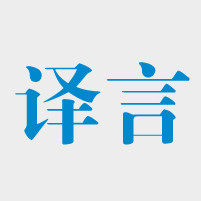正文
这种市场地位引发人们对呼吁分解科技巨头企业,就像二十年代早期分解美国美孚石油公司一样。本报(《经济学人》)过去反对过如此激进的行为。企业规模庞大无罪可言。这些巨头的成功同时也是消费者受益。所有人都离不开谷歌的搜索引擎,亚马逊的次日到货,以及脸书的新闻推送。这些企业在标准反垄断审查实行后,也未引起警觉。他们并没有对消费者漫天要价,许多服务都是免费的(实际上,用户也会买单,只不过方式是不断发回数据)。如果考虑到线下竞争者,他们的市场份额并没有庞大到那么令人担忧。此外,新兴创业公司的出现,如Snapchat,表明后来者也能“兴风作浪”。

But there is cause for concern. Internet companies’ control of data gives them enormous power. Old ways of thinking about competition, devised in the era of oil, look outdated in what has come to be called the “data economy” . A new approach is needed.
但是,担忧是有原因的。互联网公司对数据的操控赋予了它们无限权利。所谓的“数据经济”已经到来,石油时代产生的对竞争的传统观点已经过时。现在需要新途径新方法。

Quantity has a quality all its own
数量中自有质量

What has changed? Smartphones and the internet have made data abundant, ubiquitous and far more valuable. Whether you are going for a run, watching TV or even just sitting in traffic, virtually every activity creates a digital trace—more raw material for the data distilleries. As devices from watches to cars connect to the internet, the volume is increasing: some estimate that a self-driving car will generate 100 gigabytes per second. Meanwhile, artificial-intelligence (AI) techniques such as machine learning extract more value from data. Algorithms can predict when a customer is ready to buy, a jet-engine needs servicing or a person is at risk of a disease. Industrial giants such as GE and Siemens now sell themselves as data firms.
有哪些东西发生了改变?智能手机和互联网使数据变得丰富繁多,无所不在,价值更大。
无论你是在跑步,看电视,或甚至堵在路上,几乎所有活动都制造了数字痕迹——数据处理库里的原始数据愈发庞大。
随着各种设备都连接到互联网,如手表,汽车,数据的容量也在增加。据估计,一辆自动驾驶汽车每秒将会产生100千兆字节。同时,人工智能(AI)技术挖掘数据的价值更大,比如机器学习。算法可以预测顾客何时想购物,喷射发动机何时需要维修,以及人类何时有患病的风险。包括美国通用和西门子在内的工业巨头,现在都自我宣传为数据公司。





